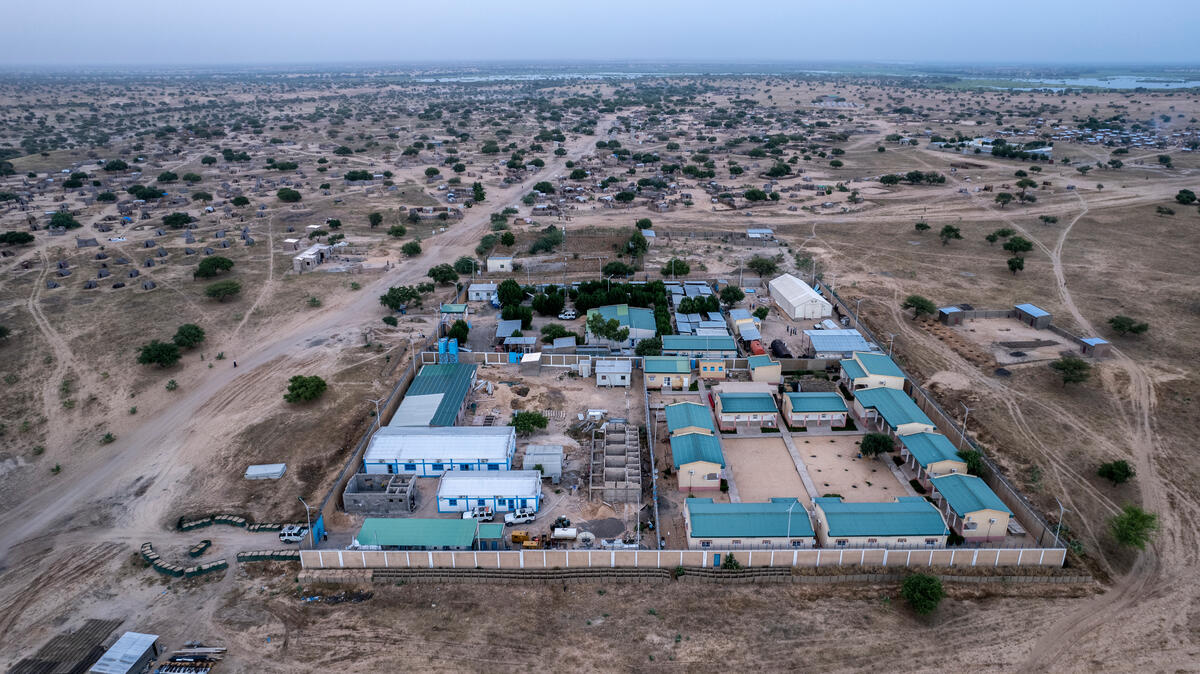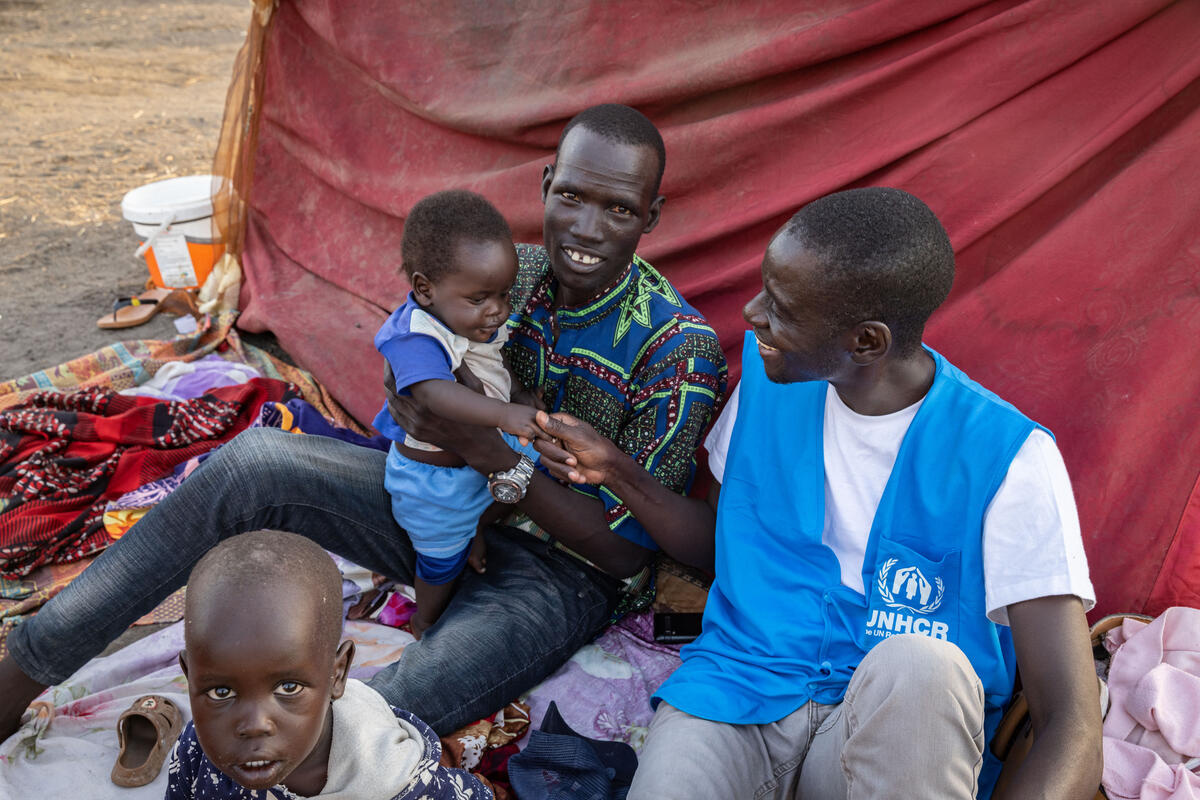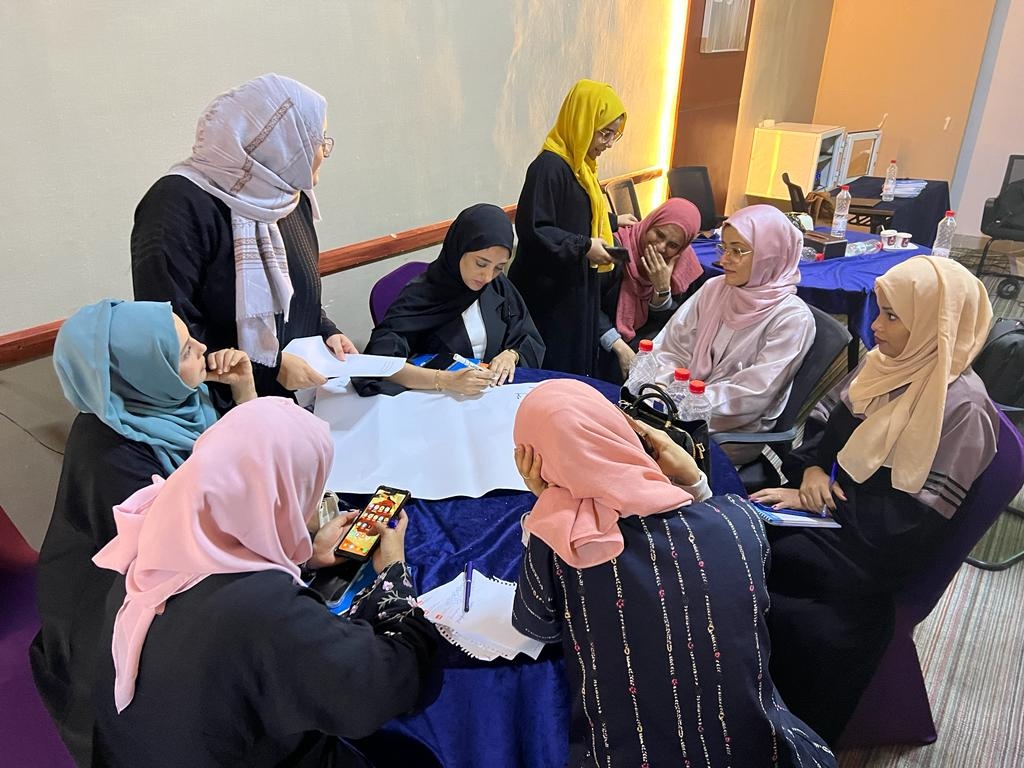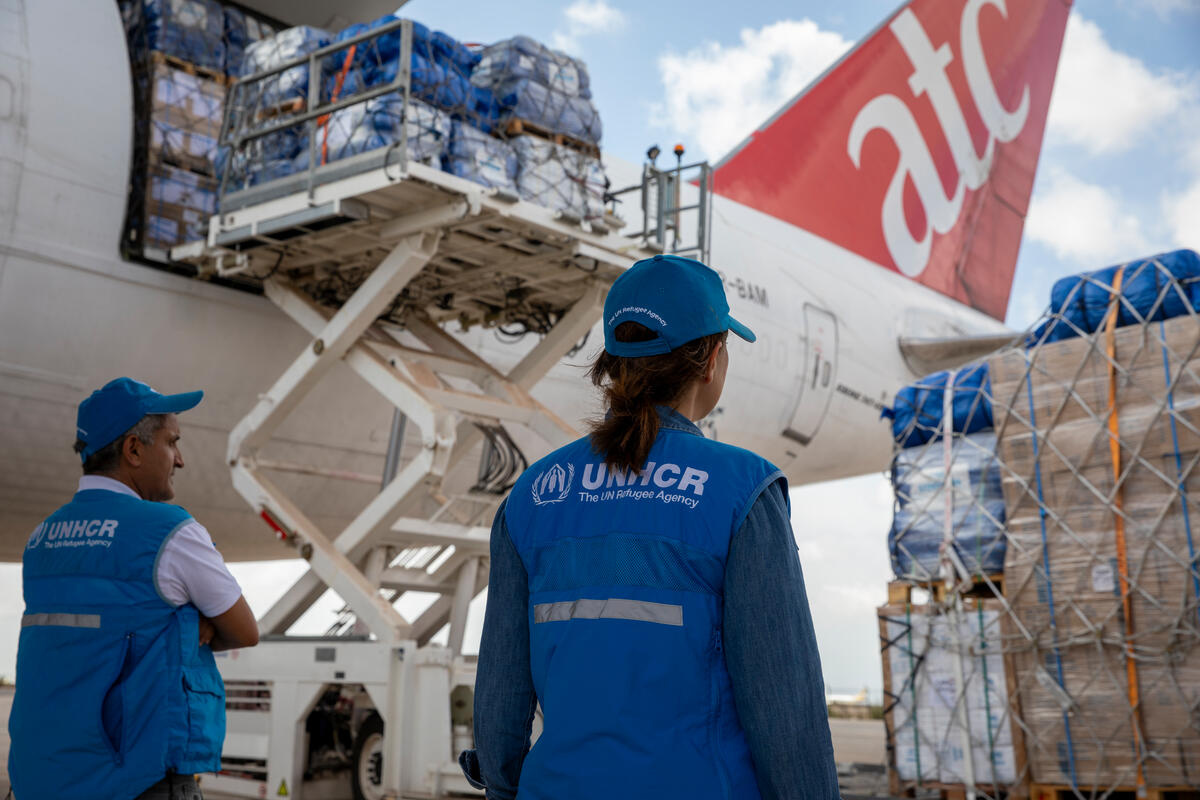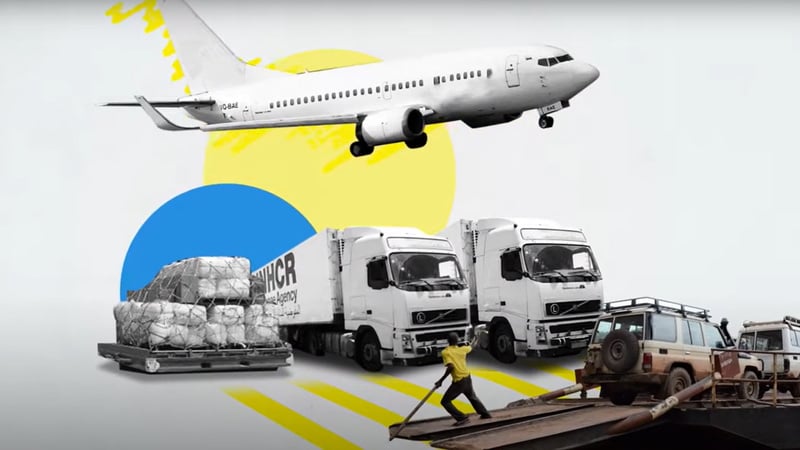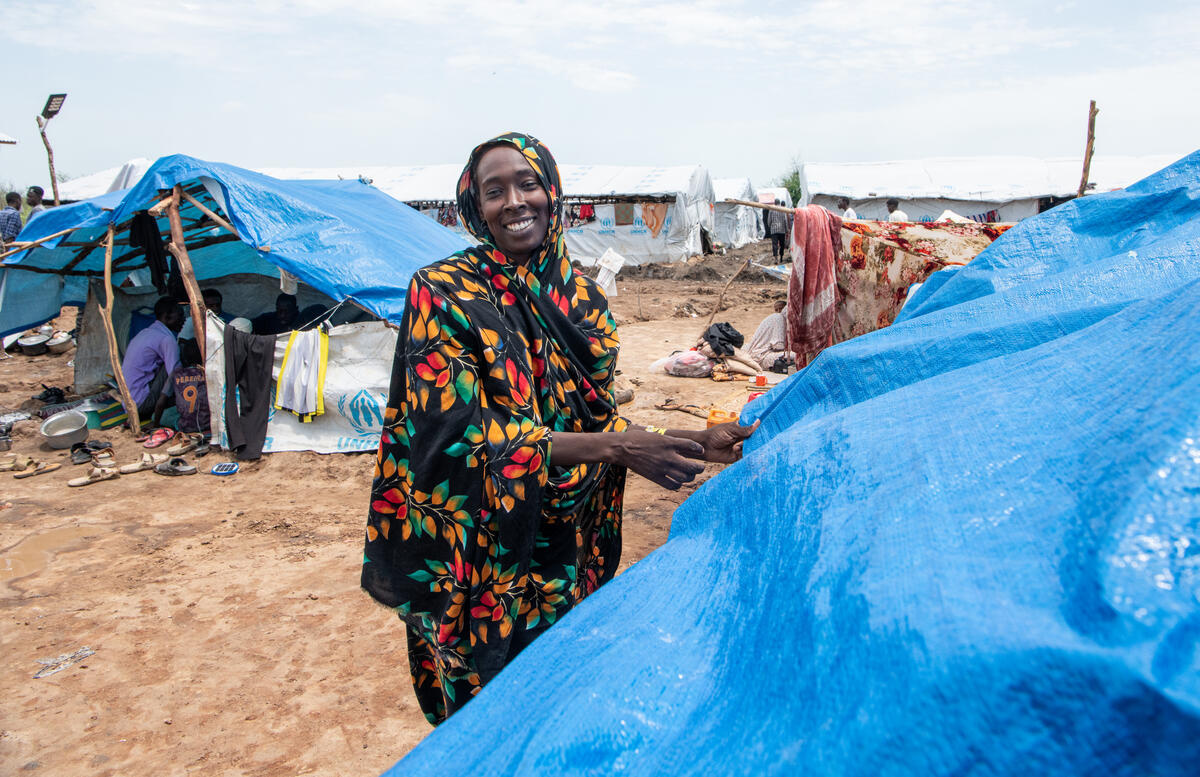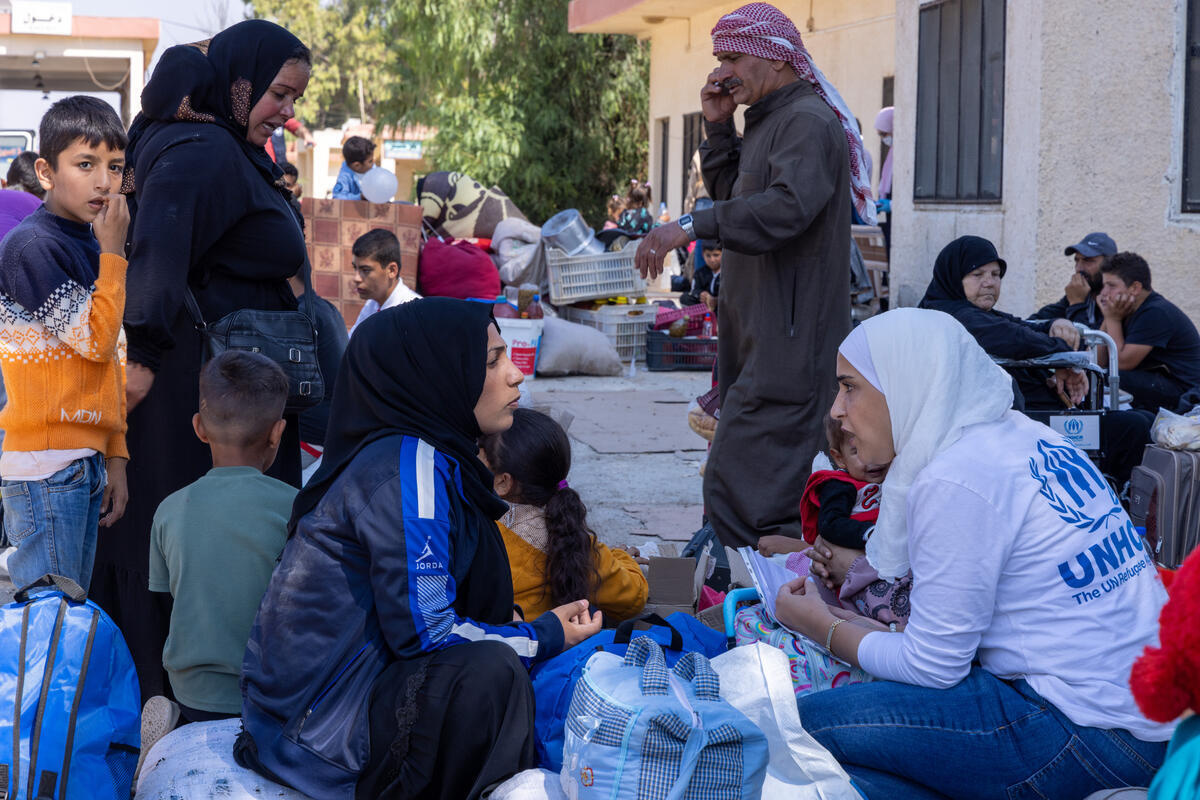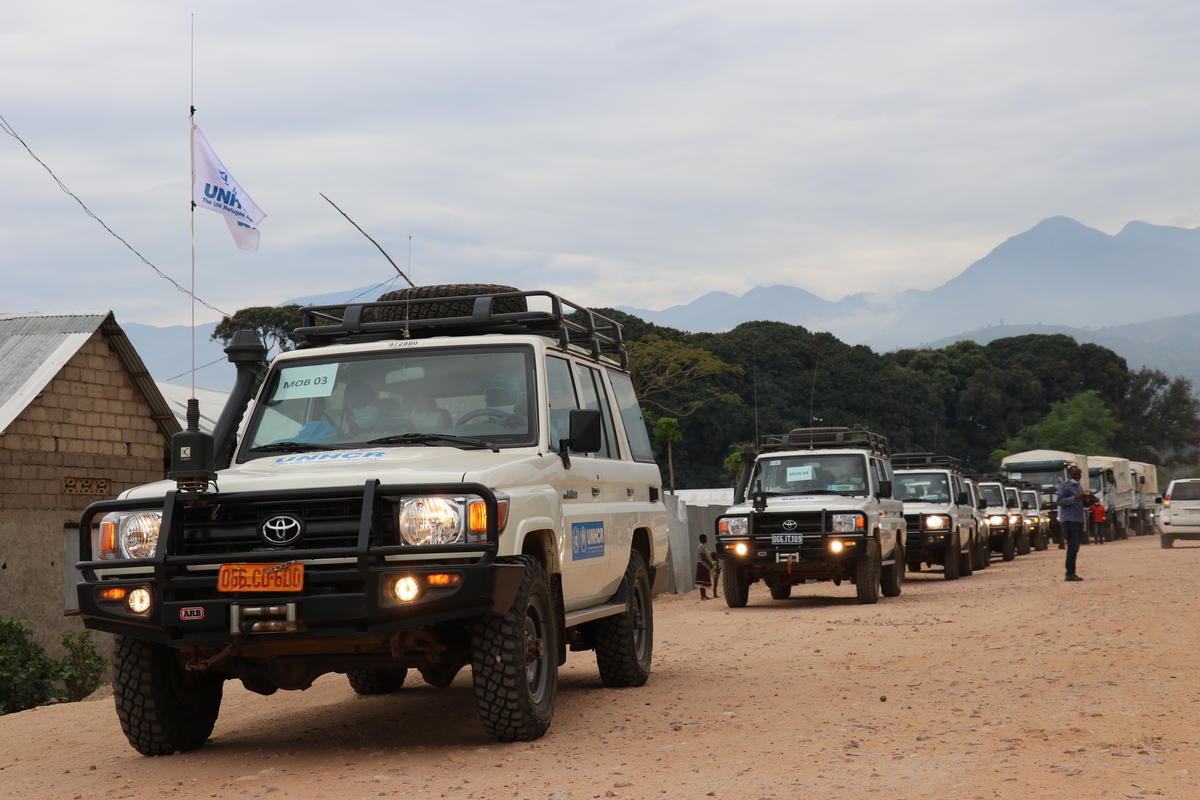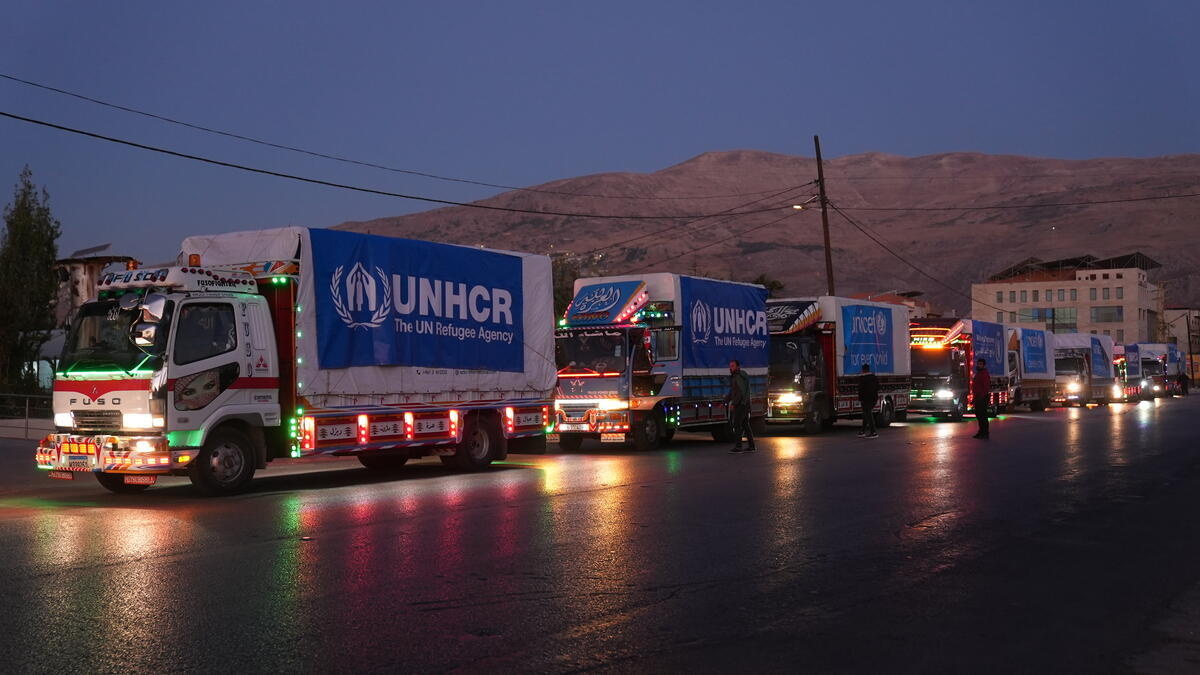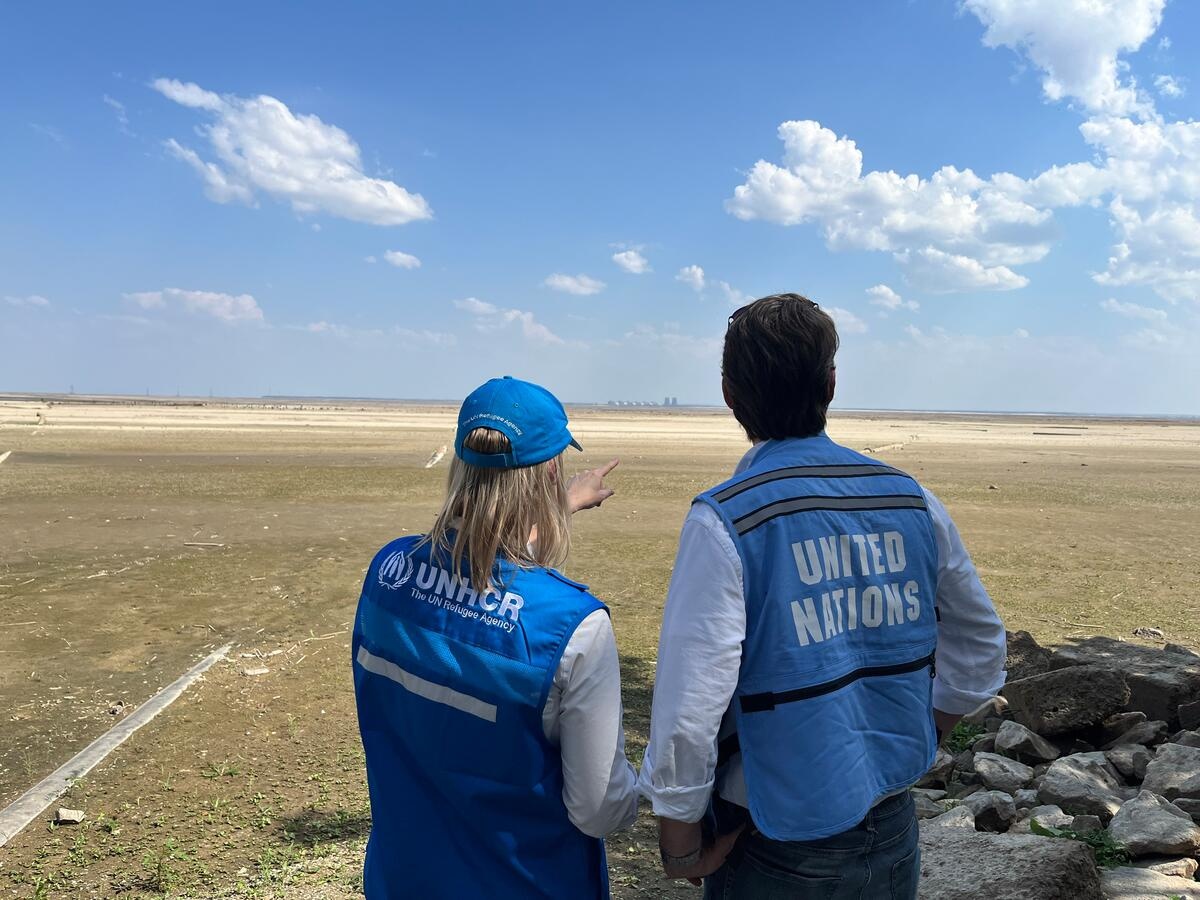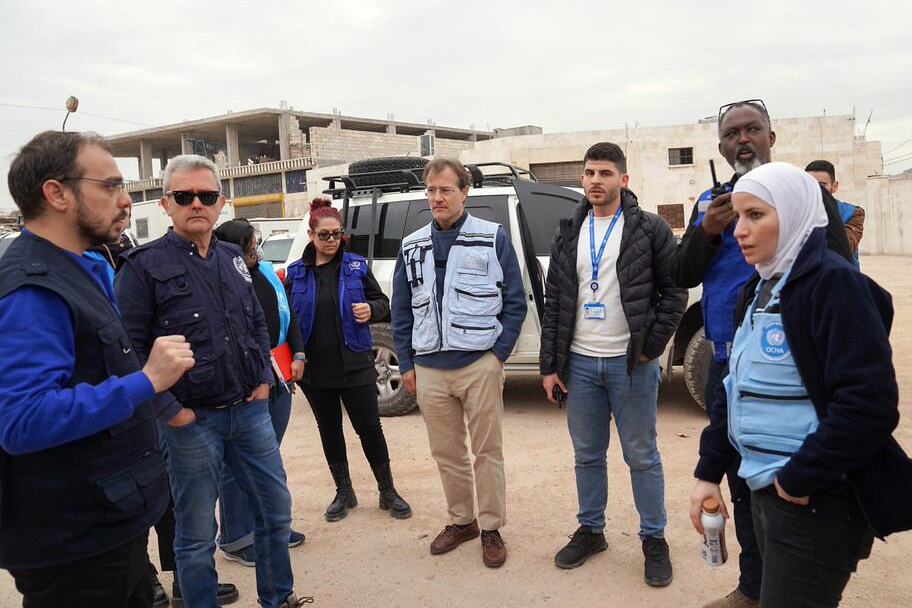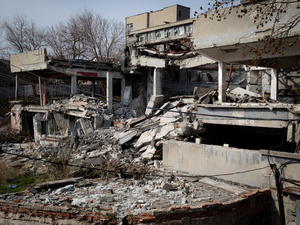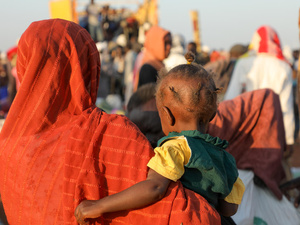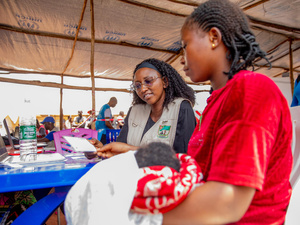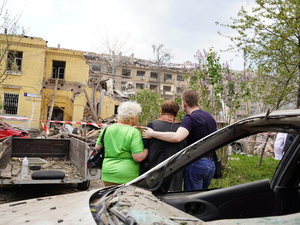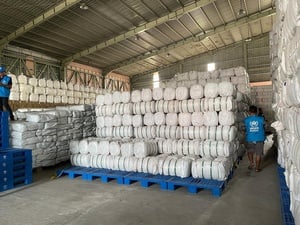Division of Emergency, Security and Supply in action

Division of Emergency, Security and Supply in action
When emergencies strike, UNHCR’s Division of Emergency, Security and Supply (DESS) mobilizes swiftly to deliver critical support to people forced to flee. The foundation for this response is grounded in proactive preparedness, collaboration, and capacity-building long before an official emergency declaration.
This is the story of how UNHCR, the UN Refugee Agency's emergency, security, and supply services come together – before, during, and after a crisis – to enable life-saving assistance.
Before an emergency: laying the groundwork for rapid response
Every response begins long before an emergency is declared. At the heart of our work lies preparation:
- analysing risks
- prepositioning supplies
- training and deploying responders.
Preparedness and early engagement are fundamental to UNHCR being a predictable lead and a reliable partner in humanitarian crises.
DESS provides technical support to Regional Bureaux and Country Operations identified as high risk for a new or escalated emergency. The UNHCR Emergency handbook is a practical guide to prepare for agile, effective and community-based humanitarian emergency responses.
DESS actively provides global and targeted support through comprehensive security threat analysis, identifying potential security, political and natural hazard risks that may lead to human displacement requiring humanitarian response. The Division then supports contingency planning to help countries at high risk of crises to prepare and ensure relevant systems are in place to respond at a moment’s notice.
A key element of planning and preparedness also includes capacity building. DESS offers tailored, person-centered training and capacity development to empower our colleagues to manage risks effectively, make informed decisions, and prepare for potential emergencies globally.
Delivering emergency aid on a large scale doesn’t happen overnight. That’s why proactive preparedness and early engagement are crucial for a timely and effective response.
Behind the scenes, DESS ensures UNHCR’s global stockpiles – strategically positioned in seven hubs worldwide – are ready to deploy within 72 hours. Whether it’s blankets, tents, or other essentials, these supplies meet the urgent needs of forcibly displaced families, wherever they are.
During an emergency: enabling a secure and effective response
UNHCR declares an emergency to ensure that Country Operations have the necessary support and capacities to deal with humanitarian crises in a timely and efficient way.
When people are forced to flee, speed is critical. Forcibly displaced people often arrive to a new location traumatized, and exhausted, with little more than the clothes on their backs. With immediate and dignified support, they are able to pick up their lives.
After an emergency declaration, UNHCR’s emergency, security and supply services come together with Country Operations and Regional Bureaux to ensure a coordinated, effective response. DESS quickly mobilizes its global stockpiles and sourcing capacity to deliver goods to forcibly displaced people to keep them safe. At the same time, the Division also helps Country Operations scale up their response and advise on the recruitment of an emergency workforce. DESS deploys expert teams from emergency rosters, standby partnerships, and other emergency support mechanisms to coordinate humanitarian efforts and ensure forcibly displaced and stateless people receive timely assistance. DESS also facilitates solutions for office, staff accommodation and ICT infrastructure through service packages from standby partners.
Emergency deployments to the concerned Country Operation(s) require colleagues with various profiles, including protection, technical fields, coordination, human resources, external relations, communications, information management, registration, supply, and security, among others.
UNHCR contributes to the United Nations Security Management System by working closely with the UN Department of Safety and Security (UNDSS) and other agencies to ensure that managers make effective decisions that prioritize and enable operations to work within acceptable risk levels while providing security for our colleagues.
DESS also coordinates and provides support by engaging with OCHA and guiding UNHCR’s operations on civil-military coordination and access, ensuring that humanitarian principles like neutrality and impartiality are upheld, thereby allowing us access to affected areas.
After an emergency: learning and evolving for future resilience
Once an emergency response stabilizes, DESS, together with other Divisions and Regional Bureaux, works to help country operations transition to a regular operational response while strengthening the organization’s future response capacity.
An ongoing commitment to the security of our personnel, premises, assets and operations requires robust security analysis and an integration of lessons learned into both UN system-wide security policies and our various security training programmes to keep UNHCR agile and ready for future challenges. Continuous security engagement allows UNHCR to implement lessons learned from each crisis and address vulnerabilities to enhance future preparedness.
The Division replenishes global stockpiles, supports restocking local warehouses, and shifts the focus to regular assistance, ensuring that forcibly displaced populations have the resources they need to rebuild their lives. In addition, where possible, we explore sustainable solutions for the entire supply chain, including logistics in emergency settings to reduce UNHCR’s environmental footprint.
Finally, DESS encourages Country Operations to plan for medium- and longer-term staffing needs beyond the initial deployments. Increasingly, DESS works to promote a sustainable response that integrates “inclusion from the start” into emergency preparedness and response. It also contributes to an evaluation of the overall response, incorporating best practices and feedback into improved planning and capacity development for the future.
Prepare.
Enable.
Respond.
Every emergency leaves behind lessons. DESS aims to ensure those lessons become the foundation for an even stronger, more agile UNHCR.


